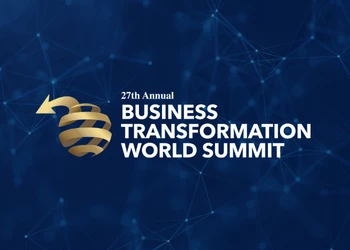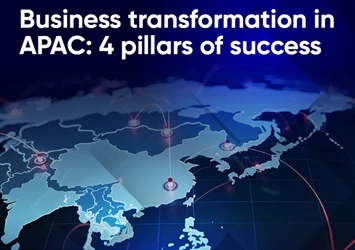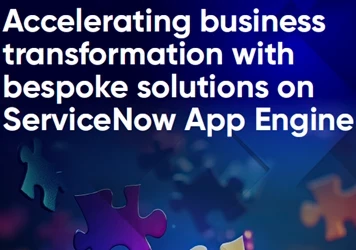Making Quality a Top Priority at Deutsche Bank
Add bookmarkIn this interview, part of a series of Q&A with advisors to PEX Network’s PEX and Performance Management conference later this year, Richard Turner, Global Head of Process Excellence at Deutsche Bank describes the key challenges facing his industry, explains why quality is a key focus at the moment and offers up his top piece of advice on operational excellence.
PEX Network: What would you say are the biggest challenges confronting your industry at the moment?
Richard Turner: There are three that I would highlight, which I’ll discuss in reverse order of importance. I think number three would be cost optimization. This is how can you work smarter and not harder and save money? You'll see that all the banks are making enormous cost reduction programs and that typically has an impact on people. But the work is still there. So you'll find that a lot of the banks are working out how to save money - and that could be by being more efficient - and it could also be through exiting certain countries and products that are not profitable enough.
Number two would be regulation.There's an extraordinary amount of regulation to implement. Probably most of it is thoroughly necessary. However, it's an enormous amount to cope with on top of a day job and other change initiatives.
And challenge number one is fraud. All the banks are suffering on this point around anti-money laundering and ensuring we're protecting the bank from fraud.
PEX Network: And is part of the issue with fraud the increasing sophistication of the criminal networks and the technology? That it's very hard to stay ahead of?
Richard Turner: Yes, for certain parts. For our part, it's around having a rigorous policy around how we onboard a client. There are big challenges around getting accurate data. If you're doing something called KYC – “Know Your Client†- and you need rigorous processes to achieve this, then you equally need very, very good data to check out who you are onboarding and you need a strong policy to say how you do this and who we want to onboard.
I think, historically, banks have had been reasonably relaxed with regards to different industries and countries. Now, they are definitely working out their appetite for risk and appropriately having the right processes behind that to make sure we only deal with customers that we really want to work with in particular industries or particular countries as well.
PEX Network: We've got the regulation aspect, we've got the profitability aspect, and we've got the fraud aspect. How would you say that those key elements or challenges are affecting your operational excellence program?
Richard Turner: It means that we must focus on delivering improvements in those three key areas. Other OpEx programs have been focused on cost in the past. This isn't about cost. This is about quality and getting it right, because it's protecting the bank from criminals, and that's really where we have to start. You can think about processes in terms of fixing cost, quality and efficiency of delivery; we are really focused right now on the quality aspect.
PEX Network: Let’s talk a little bit more about your operational excellence program. What's its history? How's it structured? How did you arrive at the more quality focused element rather than, say, the cost element?
Richard Turner: After discussions with the regulator, the bank recognized that they had to pay attention to client onboarding and “KYC.†It has become the CEO's number one thing to fix. As a result, our program was built around that objective. I came in around October time to lead the process and organization design workstream. But there are lots of other workstreams involved; it's a bank-wide program that is our key priority.
PEX Network: My final question is a much more general one: what would you say is the best piece of advice you've ever received about operational excellence?
Richard Turner: I'd say that programs fail not because the solution's wrong or you've got the wrong bit of technology. It's always around people. If you go back to reading Kotter [refers to John Kotter, author of best selling book Leading Change], there is a long list of things that he looked at and asked why do transformations fail or operational excellence programs fail? All of them are related to people. So if you can get that right, get the engagement and the communication right, and you've got sponsorship, then you're on a good path to actually being successful.
[inlinead]




















